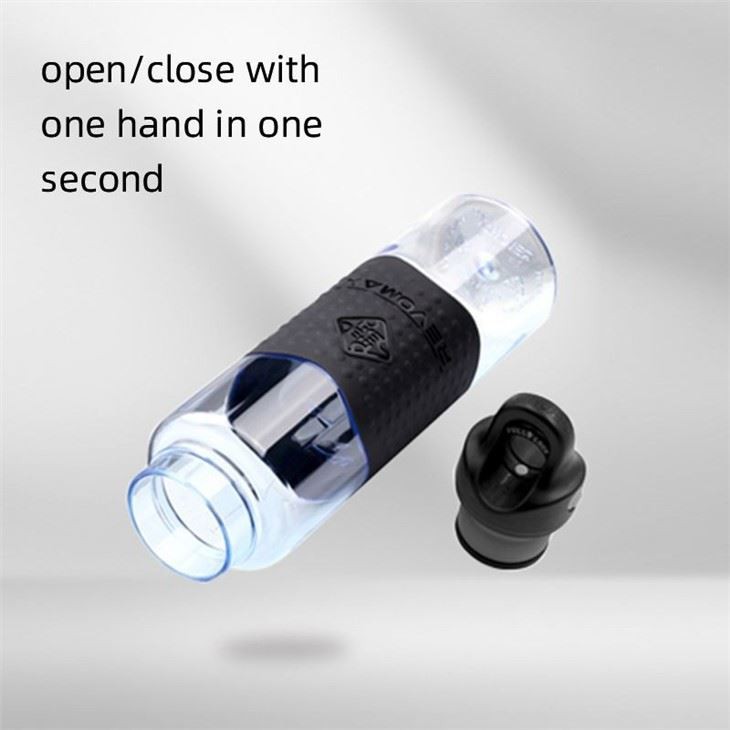Hey there! As a supplier of Tritan BPA-free water bottles, I often get asked if there are any health risks associated with these bottles. It's a valid concern, especially when it comes to what we put our drinks in. So, let's dive right into it and explore this topic in detail.
First off, what is Tritan? Tritan is a type of plastic that's been gaining popularity in the water bottle market. It's known for being BPA-free, which is a huge plus. BPA, or bisphenol A, is a chemical that has been linked to a variety of health issues. Studies have shown that BPA can interfere with the body's endocrine system, potentially leading to problems like reproductive issues, developmental problems in children, and even an increased risk of certain cancers [1]. That's why the move towards BPA-free products, like our Tritan water bottles, has been so important.
So, if Tritan is BPA-free, does that mean it's completely risk-free? Well, the short answer is that, as of now, there's no evidence to suggest that Tritan poses significant health risks. Tritan is a copolyester plastic that's made from a combination of different monomers. These monomers are chosen because they're considered to be safe for use in food and beverage containers.
One of the great things about Tritan is its durability. It's shatter-resistant, which means you don't have to worry about it breaking easily if you drop it. This also makes it a great choice for people who are on the go, like athletes or outdoor enthusiasts. And because it's so durable, you can use it for a long time, which is better for the environment too.
Another advantage of Tritan is its clarity. It has a crystal-clear appearance, which not only looks great but also makes it easy to see if your bottle needs a good cleaning. Plus, it doesn't have that cloudy or hazy look that some other plastics can develop over time.
But what about when it comes to leaching? Leaching is when chemicals from the plastic can seep into the liquid inside the bottle. With BPA-containing plastics, this was a major concern. However, studies on Tritan have shown that it has very low levels of leaching. In fact, it meets strict safety standards set by organizations like the US Food and Drug Administration (FDA) and the European Food Safety Authority (EFSA) [2]. These standards ensure that the amount of any potentially harmful substances that could leach into your drink is well below the level that would cause any health problems.
Now, let's talk about some of the common myths and misconceptions about Tritan water bottles. One myth is that any type of plastic is bad for you. While it's true that some plastics can be harmful, not all plastics are created equal. Tritan is specifically designed to be a safe alternative to traditional plastics.
Another myth is that Tritan can release harmful chemicals when it's exposed to heat. While it's always a good idea to avoid exposing any plastic to extremely high temperatures, Tritan is actually quite heat-resistant. It can withstand temperatures up to a certain point without degrading or releasing harmful substances. However, it's still best to follow the manufacturer's instructions and not leave your Tritan water bottle in a hot car or expose it to direct sunlight for extended periods.
So, if you're in the market for a new water bottle, a Tritan BPA-free water bottle is a great choice. It offers a combination of safety, durability, and style. And as a supplier, I can assure you that we take quality and safety very seriously. Our bottles are made with the highest standards in mind, and we're constantly testing and improving our products to ensure they meet your needs.
If you're interested in learning more about our BPA-free drinking water bottles, you can check out our website Bpa Free Drinking Water Bottles. Here, you'll find a wide range of options to choose from, including our popular 22oz Tritan Sports Water Cup. And if you're wondering about whether it's safe to refill your plastic water bottle, we've got you covered too. Check out our article on Safe To Refill Plastic Water Bottles.
We're always looking for new partners and customers, so if you're interested in purchasing our Tritan BPA-free water bottles for your business or personal use, don't hesitate to reach out. We offer competitive prices, high-quality products, and excellent customer service. Whether you're a retailer looking to stock our bottles in your store or an individual looking for a great water bottle for yourself, we'd love to hear from you.


In conclusion, based on the current scientific evidence, Tritan BPA-free water bottles are a safe and reliable choice. They offer many benefits, from their durability and clarity to their low leaching levels. So, if you're looking for a water bottle that you can trust, give our Tritan bottles a try.
References
[1] vom Saal, F. S., & Hughes, C. (2005). An extensive new literature concerning low-dose effects of bisphenol A shows the need for a new risk assessment. Environmental Health Perspectives, 113(8), 926-933.
[2] European Food Safety Authority. (2018). Scientific opinion on the safety of polycarbonate and epoxy resins used in food contact materials. EFSA Journal, 16(4), e05140.


